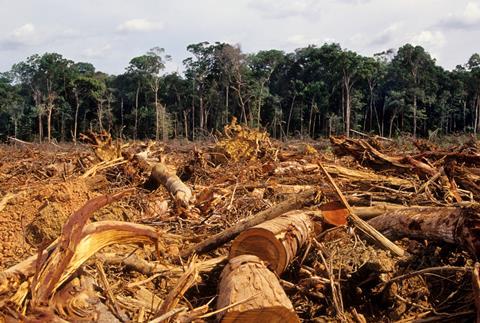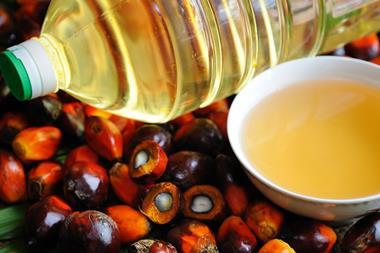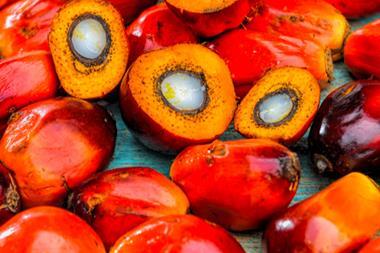
Last month, the EU parliament voted in favour of introducing a new law to prevent the import of commodities that are linked to deforestation. Michael Rice from ClientEarth called the regulations a “new gold standard” in environmental law, and one of the biggest steps forward to date in the fight to protect the world’s forests.
Importers will need to trace products back to the specific plot of land on which they have been produced, and demonstrate no deforestation has occurred. This regulation was broadly agreed in December 2022 and is likely to be fully in force before the end of 2024.
The commodities in scope include palm oil, cocoa, coffee, soy, beef, wood and rubber, but will also include byproducts such as charcoal and printed paper products.
The backdrop is this: the UN’s Food & Agriculture Organisation (FAO) estimates 420 million hectares of forest have been lost to deforestation between 1990 and 2020, which is roughly the same size as the land mass covered by the EU. Deforestation is also a major cause of global biodiversity loss, with over one million species threatened with extinction today.
Consumption within the EU has been linked to 10% of total global forest loss between 1990 and 2020. A sixth of the carbon footprint associated with a European’s diet comes from deforestation.
The EU estimates the new rules would result in a reduction of at least 32 million metric tonnes of carbon emissions each year – it puts a cost of these emissions at €3.2bn annually.
Importers will need to demonstrate detailed due diligence procedures are in place, alongside the ability to trace commodities back to specific geographic co-ordinates. Firms will be expected to have information gathering systems fully functional by 2024 and to undertake ongoing assessments of deforestation risks.
They will also be tasked with implementing risk mitigation processes, and to report details on imported commodities to the EU on a systematic and standardised basis going forward. National regulators within each of the European nation states will have the power to levy fines of at least 4% of EU revenues for any company found not to be compliant with the regulations.
We see two broad categories of incremental costs: firstly recurrent due diligence costs associated with the logistics of complying with the reporting requirements and ensuring traceability geolocation; and secondly implementation costs associated with potential global supply chain and footprint reorganisation, required where current supply chains are unable or unlikely to be compliant with the regulation.
The EU Commission has estimated the recurrent annual due diligence costs for importers could range from €175m to €2.6bn. Implementation costs are a greater uncertainty at this point and guidance from companies is relatively scarce.
One potential issue is the future of smallholders, who are likely to face more challenges to remain in compliance with the new rules and may need to consider supplying only non-EU buyers who have less stringent rules. The problem is, smallholders produce around 40% of all palm oil, which potentially would be excluded from the European supply of food without financial and technical assistance to cope with the new requirements. Without this, it could mean palm importers may need to bear additional costs to reorganise existing supply chains.
Reports from the Rainforest Action Network as well as the Palm Oil Transparency Coalition suggest companies are still significantly unprepared for these new laws, with traceability and due diligence requirements lacking across the board.
The bigger companies in the sector have been active on this topic. For example, Nestlé has been using satellite technology since 2016 to assess the risk of deforestation near to its sourcing locations. In a pilot scheme, Nestlé will now also use satellites to monitor its reforestation efforts. It is aiming to plant 200 million trees by 2030, with the objective of removing two million tonnes of carbon dioxide.
Whilst this would represent progress, the issue is how other companies – who do not have the financial resources of industry giants such as Nestlé – can comply with these new rules.
With this move, the EU has raised the bar for other countries, offering a glimmer of hope in addressing deforestation and biodiversity loss.



















No comments yet